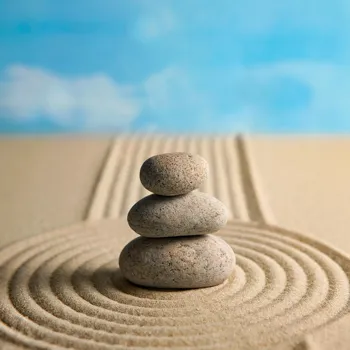Uncover the power of mindfulness! Learn simple practices to enhance focus, reduce stress, and boost well-being. Dive in now!
In today's fast-paced world, many of us often feel overwhelmed and stressed.
From managing work deadlines to keeping up with social commitments, our minds are constantly occupied with a multitude of thoughts and worries.
This constant mental chatter can lead to anxiety, fatigue, and a general sense of unease. Mindfulness offers a powerful antidote to these modern-day challenges.
It’s about paying attention to the present moment without judgement, allowing us to become more aware of our thoughts, feelings, and bodily sensations. This awareness, in turn, can help us to manage stress, improve focus, and cultivate a greater sense of well-being.
By incorporating mindfulness into our daily routines, we can learn to navigate life's ups and downs with greater ease and resilience.
Practice mindfulness to be fully present, observing thoughts without judgment
What exactly is this 'mindfulness' everyone is talking about? Simply put, it’s the practice of being fully present in the current moment, observing your thoughts and feelings without getting carried away by them. Think of it like watching clouds pass by in the sky.

You notice them, but you don't chase after them or try to hold onto them. Similarly, in mindfulness, you observe your thoughts and emotions without judgement, allowing them to come and go naturally. This practice doesn't mean you have to empty your mind completely.
It’s more about noticing when your mind wanders and gently guiding it back to the present. It's about cultivating a sense of curiosity and openness towards your experiences, whether they are pleasant or unpleasant.
By regularly practicing mindfulness, you can train your brain to become more focused, calm, and resilient.
Benefits of mindfulness: stress relief, focus improvement, better relationships, and more
So, why should you even bother giving mindfulness a try? The benefits are numerous and far-reaching. For starters, mindfulness is a proven stress-buster. By focusing on the present moment, you can break free from the cycle of anxious thoughts and worries about the future.

It can also help to improve your focus and concentration, making you more productive at work and in your personal life. Studies have shown that mindfulness can reduce symptoms of anxiety and depression, improve sleep quality, and even boost your immune system.
Moreover, mindfulness can enhance your relationships by making you more present and attentive to others. It can also foster a sense of gratitude and appreciation for the simple things in life.
7 easy mindfulness practices for daily routine
Ready to give mindfulness a shot? Here are seven simple practices you can easily incorporate into your daily routine, no need for fancy equipment or special training!

Mindful Breathing
This is perhaps the simplest and most accessible mindfulness practice. Find a comfortable spot, close your eyes, and focus on your breath. Notice the sensation of the air entering and leaving your body. When your mind wanders (and it will!), gently guide it back to your breath.

You can do this for just a few minutes each day.
Mindful Walking
Turn your daily walk into a mindfulness exercise. Pay attention to the sensation of your feet making contact with the ground. Notice the sights, sounds, and smells around you. Avoid getting lost in your thoughts; instead, focus on the present moment.

Mindful Eating
Savor each bite of your food. Pay attention to the taste, texture, and aroma. Eat slowly and deliberately, without distractions. Notice how your body feels before, during, and after eating. This can help you to develop a healthier relationship with food.
Body Scan Meditation
Lie down comfortably and bring your attention to different parts of your body, one at a time. Notice any sensations you may be experiencing, such as tension, warmth, or tingling. Simply observe these sensations without judgment.
This practice can help you to become more aware of your body and its needs.
Mindful Listening
When someone is speaking to you, give them your full attention. Avoid interrupting or planning your response. Simply listen attentively and try to understand their perspective. This can improve your communication skills and strengthen your relationships.

Mindful Chores
Even mundane tasks like doing the dishes or folding laundry can become opportunities for mindfulness. Pay attention to the sensations of the water, the soap, or the fabric. Focus on the task at hand and avoid distractions.
Gratitude Practice
Take a few minutes each day to reflect on the things you are grateful for. This could be anything from your health to your relationships to a beautiful sunset. This practice can help you to cultivate a more positive outlook on life.
Practice mindfulness with patience and curiosity for peace
Remember, mindfulness is a skill that requires practice. Be patient with yourself and don't get discouraged if your mind wanders. The key is to keep practicing and to approach it with a sense of curiosity and openness.

With regular practice, you can experience the many benefits of mindfulness and cultivate a greater sense of peace and well-being in your daily life. Start small, be consistent and you will find a positive change.
AI Generated Content. Glance/InMobi shall have no liability for the content












